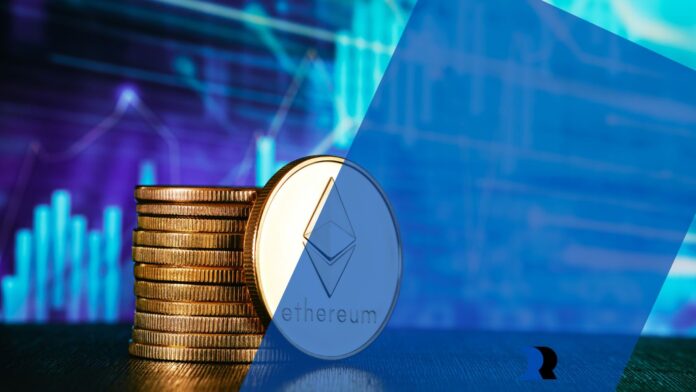Oracles play a crucial role in connecting the decentralized realm with real-world data. This article explores the significance of Ethereum oracles and the use cases for Ethereum Oracles.
Additionally, if you are into Ethereum investment, you may consider knowing about Ethereum’s Scale Limitations.
Ethereum Oracles: A Gateway to Real-World Data
Ethereum, as one of the leading blockchain platforms, recognizes the critical need to bridge the gap between the blockchain and real-world data. This is where Ethereum oracles come into play, serving as the gateway that connects the decentralized realm with the vast and dynamic information of the real world.
By integrating oracles within the Ethereum network, developers and users gain access to a reliable and transparent means of obtaining real-world data for their smart contracts and decentralized applications (DApps). Oracles act as trusted intermediaries, facilitating the communication between the blockchain and external sources of information.
Various oracle solutions have emerged in the Ethereum ecosystem, with notable examples including Chainlink, Band Protocol, and Provable. These oracle technologies enable the retrieval and verification of real-world data, ensuring its accuracy and integrity before it is utilized within the blockchain network.
Centralized and decentralized oracles are two approaches to the implementation of oracles in Ethereum. Centralized oracles rely on a single source or entity to provide the necessary data, while decentralized oracles leverage multiple sources and employ consensus mechanisms to ensure the accuracy and reliability of the data obtained.

The integration of Ethereum oracles brings numerous benefits to the blockchain ecosystem. Transparency is one of the key advantages, as users can verify the source and authenticity of the data they receive. Additionally, oracles enhance the reliability of smart contracts by enabling them to react to real-world events and conditions, making them more robust and adaptable.
Furthermore, Ethereum oracles contribute to the scalability of the blockchain network. By offloading certain computations and data retrieval tasks to oracles, the burden on the blockchain itself is reduced, resulting in improved efficiency and faster transaction processing.
Real-world use cases exemplify the power and potential of Ethereum oracles. From real-time price feeds in decentralized finance (DeFi) applications to supply chain management, insurance, and government applications, Ethereum oracles enable the integration of blockchain technology with various industries and sectors, unlocking new opportunities and transforming existing processes.
Implementing Ethereum oracles requires careful consideration and adherence to best practices. Selecting the right Oracle solution, ensuring security and reliability, managing costs, and monitoring performance are crucial aspects that developers and organizations must address. Active community engagement and developer support further facilitate the successful implementation and evolution of Ethereum oracles.
Use Cases for Ethereum Oracles
One prominent use case for Ethereum oracles is in decentralized finance (DeFi). With the ability to provide real-time price feeds for cryptocurrencies and other financial instruments, oracles are essential in enabling accurate pricing and execution of smart contracts within DeFi applications. Whether it’s for lending and borrowing protocols, decentralized exchanges, or automated market makers, Ethereum oracles ensure the integrity and reliability of pricing data, fostering trust and efficiency in the DeFi ecosystem.
Supply chain management is another area where Ethereum oracles play a vital role. By integrating with external data sources such as IoT devices, oracles can gather real-time information about product origins, shipment status, and quality control measures. This transparency and traceability enhance supply chain efficiency, reduce fraud and counterfeiting risks, and empower consumers with verifiable product information.

Insurance and prediction markets are also benefiting from Ethereum oracles. Oracles enable the integration of real-world data, such as weather conditions or sports event outcomes, into insurance policies and prediction markets. This allows for more accurate risk assessment, streamlined claims processes, and the creation of decentralized prediction platforms that rely on trusted and reliable external data.
Governments and regulatory bodies are also exploring the potential of Ethereum oracles. By leveraging oracles, governments can securely access and verify data for identity verification, public recordkeeping, voting systems, and compliance monitoring. This enhances transparency, reduces bureaucracy, and promotes efficiency in government processes, ultimately benefiting citizens and institutions alike.
Conclusion
Ethereum oracles have emerged as essential components in the blockchain ecosystem, enabling seamless integration with real-world data. With their ability to provide reliable and transparent information, Ethereum oracles unlock numerous possibilities across industries, from decentralized finance to supply chain management. Embracing Ethereum oracles opens doors to a future of interconnectedness and innovation.


